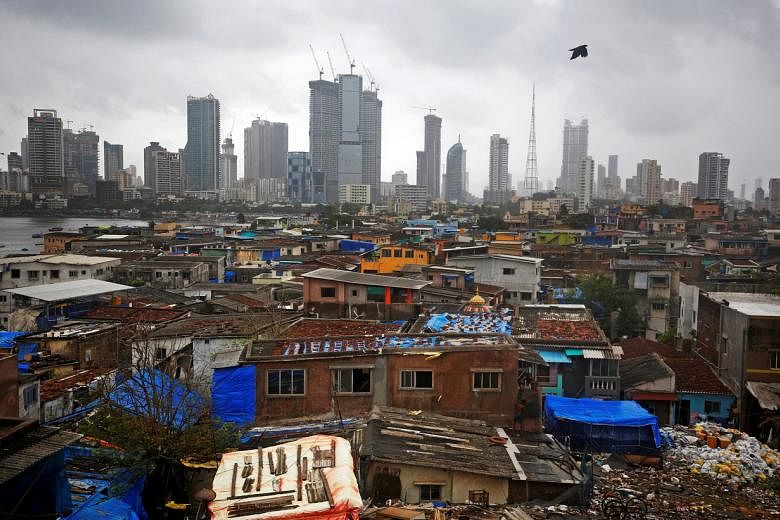MUMBAI (REUTERS) - India's crowded financial hub Mumbai won plaudits this year for tackling the second wave of the pandemic better than any other metropolis in the country, and it is gearing up to get ahead of a potential third wave that experts fear could affect children.
Mumbai is building four mammoth centres across the city with units for children infected with Covid-19 and it is working closely with a special task force that includes some of India's top paediatricians, the city's civic chief said.
"If a two-year-old child becomes highly symptomatic, how can you deposit the child in hospital without the mother?" Mumbai's municipal commissioner Iqbal Singh Chahal told Reuters.
"We have already started preparing for that... One should be faster than the virus."
With more than 25 million infections, India has the world's second-largest caseload after the United States and many of its states have been grappling with a lack of hospital beds and inadequate oxygen and medical supplies.
Mumbai, in India's richest state, Maharashtra, struggled initially with one of the highest caseloads in the country, but reined in the virus with strict lockdowns, widespread testing and a decentralised Covid-19 management system.
Mr Chahal, widely credited for successfully managing the surge there, said the four Covid-19 care centres with paediatric units, as good as hospitals, will be able to house more than a thousand children along with a parent.
The facilities, which will also have intensive-care units (ICUs), will be ready by next month, well before experts predict the third wave will hit, said Mr Chahal, adding that there is ample funding from the state, companies and even Bollywood celebrities.
The city is spending tens of millions of dollars to build the paediatric units and is already procuring ventilators, monitors and other medical equipment, Mr Chahal said.
Apart from these units, the government is also in talks with hospitals to increase the number of paediatric beds and ICUs.
The paediatric task force, led by Dr Suhas Prabhu, plans to train about 660 paediatricians on how to handle children affected by Covid-19, and then broaden the training to more staff.
The third wave might not end up affecting children greatly, but cities like Mumbai cannot afford to be caught off guard, Dr Prabhu said.
The Mumbai model
Mr Chahal was handpicked by Maharashtra's Chief Minister Udhhav Thackeray in May last year to lead the city's response when the virus hit.
Mr Chahal, the son of an army officer, set up local Covid-19 "war rooms" in 24 zones in the city to decentralise the pressure and hasten the response.
Even as other cities in Maharashtra continue to report high numbers, Mumbai's cases have plunged, says Dr Prince Surana, a doctor who runs three hospitals in the city.
But Mr Chahal says Mumbai is not out of the woods.
The city, like the rest of India, is still grappling with an acute shortage of vaccines.
The city has floated a global tender to acquire 10 million doses from private companies, Mr Chahal said.
"If we get the vaccines, in 60 days we can fully vaccinate Mumbai and negate the threat of a third wave," he said.
"That's my biggest challenge and we are on it now."











